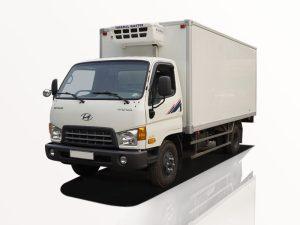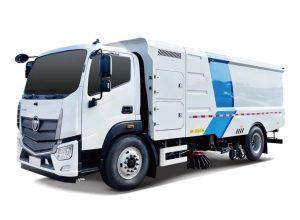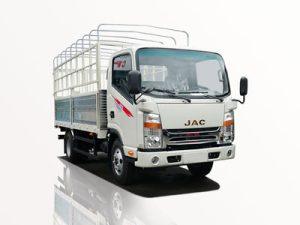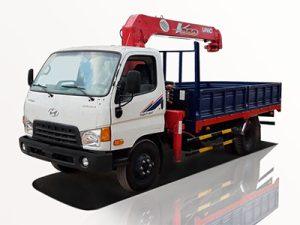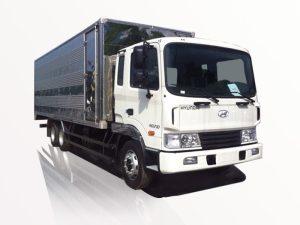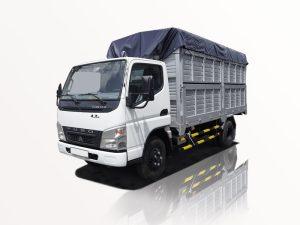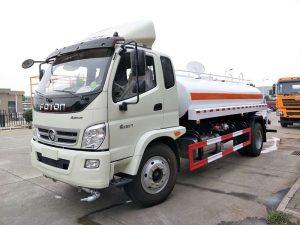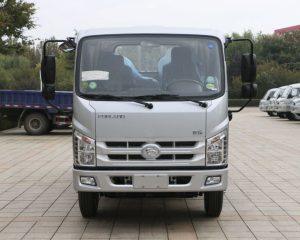Monday to Saturday - 8:00 -17:30
Understanding Peterbilt Vacuum Trucks: A Comprehensive Guide
Peterbilt vacuum trucks have become a vital component in various industries, from municipal work to oil and gas. Their versatility, reliability, and efficiency make them an excellent choice for waste removal, emergency situations, and more. This article delves into everything you need to know about Peterbilt vacuum trucks, including their features, types, maintenance tips, and answers to frequently asked questions.
What is a Peterbilt Vacuum Truck?
A Peterbilt vacuum truck is a specialized vehicle designed for the transportation and removal of liquids, sludges, and solid waste material. Equipped with a powerful vacuum system, these trucks efficiently suck up waste from various locations. Industries utilizing these trucks include construction, septic services, and environmental clean-up.
Key Features of Peterbilt Vacuum Trucks
1. Powerful Vacuum Systems
At the heart of every Peterbilt vacuum truck is a robust vacuum system. This system is designed to generate a strong suction, allowing operators to efficiently collect and transport large volumes of waste materials.
2. Built-in Storage Tanks
These trucks come equipped with large storage tanks tailored for holding various waste types. The tank design is crucial for ensuring stability and efficiency during transport.
3. Versatile Configurations
Peterbilt offers a range of vacuum truck configurations, allowing users to select the best fit for their specific needs, whether it be a combination vacuum truck or a dedicated vacuum unit.
4. Enhanced Maneuverability
Peterbilt vacuum trucks are engineered with superior handling and maneuverability, making them suitable for urban environments as well as rugged job sites.
5. Durable Build Quality
Manufactured with high-quality materials, Peterbilt trucks are known for their longevity and ruggedness, capable of withstanding harsh working conditions.
Types of Peterbilt Vacuum Trucks
Peterbilt provides several types of vacuum trucks, each tailored for various applications.
1. Combination Vacuum Trucks
Combination vacuum trucks are equipped with both a vacuum system and a pressured jetting system. They are ideal for cleaning sewer lines and culverts.
2. Septic Trucks
Dedicated septic trucks are designed for the removal and transportation of human waste and sewage from septic systems and holding tanks.
3. Industrial Vacuum Trucks
These trucks are built for handling hazardous materials and large debris in industrial settings. They often include specialized filtration systems.
4. Hydro Excavators
Hydro excavators use high-pressure water to excavate soil for utility lines while simultaneously vacuuming the resulting debris, making them perfect for precise digging without damaging existing structures.
How to Choose the Right Peterbilt Vacuum Truck
1. Assess Your Waste Management Needs
Determine the types and quantities of waste you need to manage. This helps in selecting the right truck with an appropriate tank size and vacuum power.
2. Consider the Terrain and Environment
Evaluate where the truck will be primarily used. For urban settings, a more compact model may be best, whereas rural applications may necessitate a larger, more robust unit.
3. Look for Customization Options
Peterbilt offers various customization options regarding tank designs, suction capabilities, and more to ensure the truck meets specific operational needs.
4. Budget
Consider your budget and the total cost of ownership, including fuel efficiency, maintenance cost, and potential resale value.
Maintenance Tips for Peterbilt Vacuum Trucks
1. Regular Inspections
Conduct routine inspections to check for any signs of wear or damage, particularly on the vacuum and storage systems.
2. Maintain Vacuum Pumps
Ensure that the vacuum pumps are serviced regularly to prevent any performance issues. Clean filters and check seals to maintain optimal suction power.
3. Clean the Storage Tank
Regularly clean the storage tank to prevent buildup of waste material and odor, which can affect the truck’s functionality and longevity.
4. Monitor Fluid Levels
Regularly check and maintain fluid levels in the hydraulic and vacuum systems to ensure safe and efficient operation.
Practical Examples of Peterbilt Vacuum Truck Applications
1. Municipal Waste Management
Cities often utilize Peterbilt vacuum trucks for street cleaning, removing leaves, debris, and even cleaning sewer systems to prevent blockages.
2. Construction Sites
In construction, vacuum trucks are indispensable for removing excavated soil, sludge, and other hazardous materials from job sites, ensuring a clean and safe working environment.
3. Environmental Cleanup
Following oil spills or chemical leaks, Peterbilt vacuum trucks are deployed to safely remove pollutants from soil or water to minimize environmental damage.
4. Industrial Applications
Factories may use Peterbilt vacuum trucks for efficiently removing waste materials, such as shavings, dust, and other debris resulting from manufacturing processes.
Cost Considerations for Peterbilt Vacuum Trucks
1. Initial Purchase Cost
The cost of a new Peterbilt vacuum truck can range significantly based on specifications, size, and customizations. On average, prices start at around $150,000 and can go beyond $300,000.
2. Financing Options
Consider various financing options available for purchasing trucks. Many dealers offer financing plans that can ease the initial burden of a cash purchase.
3. Operating Expenses
Evaluate the operating expenses, including fuel, maintenance, and insurance. High fuel consumption can significantly impact overall cost efficiency.
Future Trends in Vacuum Truck Technology
1. Increased Automation
Future models of Peterbilt vacuum trucks may incorporate more automation features, leading to enhanced operation efficiency and reduced driver fatigue.
2. Eco-Friendly Options
As environmental regulations become stricter, expect to see more environmentally friendly models and technologies incorporated into new vacuum trucks.
3. Enhanced Telemetry and Diagnostics
Modern trucks may come equipped with advanced telematics systems for real-time monitoring, enhancing maintenance scheduling and operational efficiency.
Frequently Asked Questions
1. What price range can I expect for a Peterbilt vacuum truck?
The price typically ranges from $150,000 to over $300,000, depending on configurations and customizations.
2. Are Peterbilt vacuum trucks suitable for residential use?
Yes, they can be used for residential applications such as septic tank cleaning and waste removal.
3. How often should I service my vacuum truck?
Regular service intervals generally recommend an inspection every 3000 to 5000 miles or quarterly, depending on usage.
4. Can a Peterbilt vacuum truck handle hazardous materials?
Yes, there are models specifically designed to safely collect and transport hazardous materials, equipped with additional safety features.
5. What is the average lifespan of a Peterbilt vacuum truck?
With proper maintenance, a Peterbilt vacuum truck can last anywhere from 10 to 15 years or more.
6. How do I find the right parts for maintenance?
It’s best to consult your Peterbilt dealer for genuine parts and recommendations tailored to your specific model.


